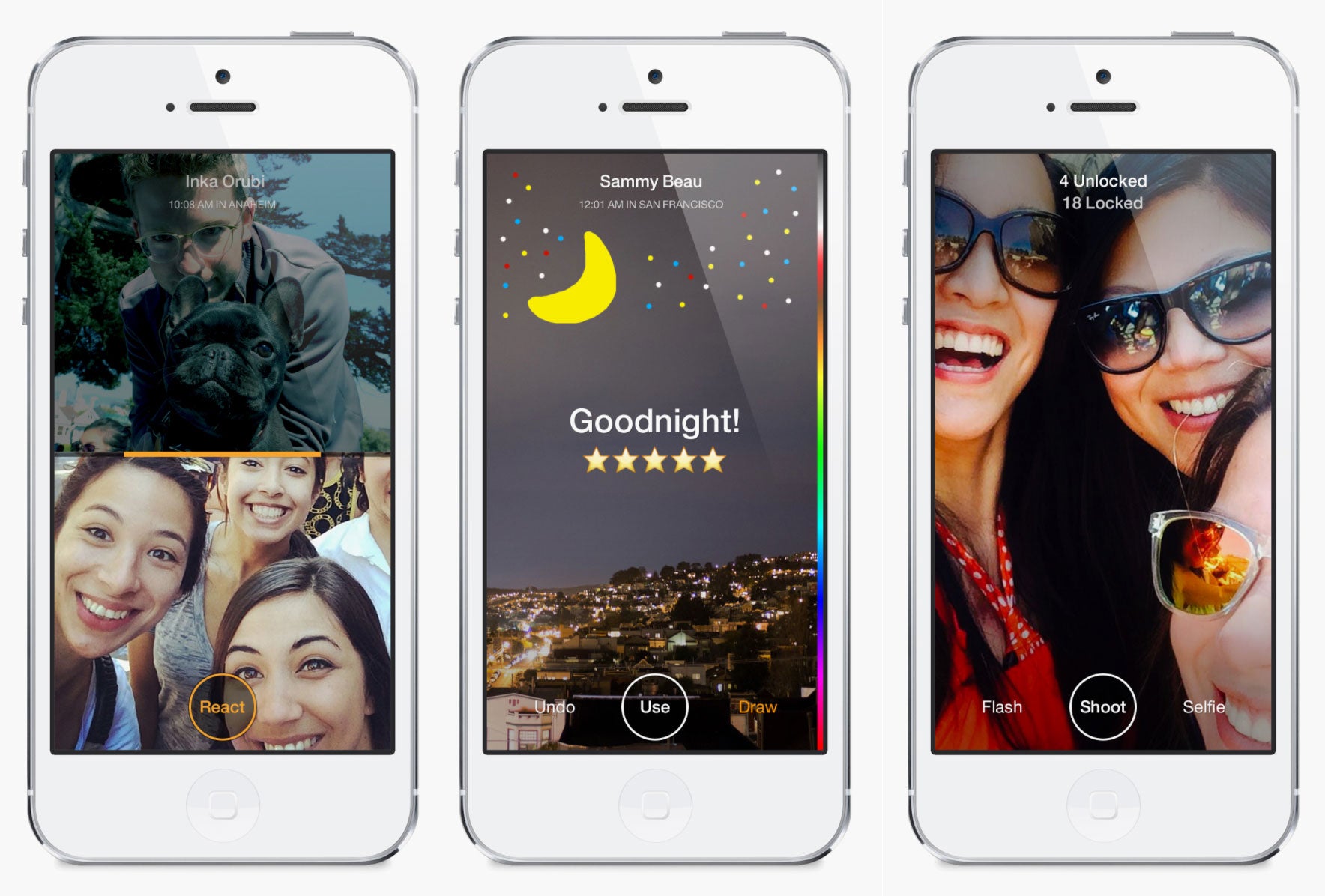Facebook launches Snapchat-competitor Slingshot: 'Pay-to-play social media' is here
New app demands that users reply to each other to unlock messages

After accidently ‘launching’ the app last week, Facebook has officially taken the wraps off its Snapchat competitor Slingshot; a new attempt to capture the ‘ephemeral messaging’ market that is already attracted criticism for its ‘pay to play’ mechanic.
The free app (currently available only in the US) lets users send videos and images to Facebook friends or contacts from their phone book (Facebook accounts aren’t required). After taking a photo users can draw on the image or add text of up to 140 characters; there's no timer to set on messages but as soon as users move on to the next onew they disappear.
However, Slingshot also introduces a new mechanism that means that users can’t see a photo sent to them until they send one back. Images are shown only as pixelated previews and recipients have to reply to unlock the message – something that Facebook thinks will encourage participation but a mechanism that early users are less saure about.
“With Slingshot, we wanted to build something where everybody is a creator and nobody is just a spectator,” wrote the app’s creators in a press release. “When everyone participates, there’s less pressure, more creativity and even the little things in life can turn into awesome shared experiences.”

However, initial reports suggest that the ‘reply to view feature might be too coercive. One user commented that “the unlock twist on Slingshot is super annoying. Forced engagement tricks drive users to leave," while another complained that he was "stuck in an infinite loop of bad 30 something dude selfies."
Speaking to technology site The Verge, Slingshot designer Joey Flynn described the app's mechanic as “pay-to-play,” adding that users shouldn’t think of it as a messaging tool but as a personalised version of Facebook’s news feeds – stripping out automatically-generated notifications and shared links in favour of pure this-is-what-I’m-up-to news.
Users have praised the app’s smooth animation and its imaginative use of sound effects (when you’re drawing on an image for example you get squeaky-marker noises and a jangly background theme) but other features are lacking: unlike Snapchat the app doesn’t tell users when recipients take a screenshot of their message - a possible barrier on sharing more candid messages.
The app reiterates Facebook’s ambition to dominate the mobile market at whatever costs, but its use of pay-to-play messaging might confirm the public’s more cynical views of social media.
Slingshot's sharing mechanism is novel, but it also makes explicit the fact that interactions online are controlled by the currency of attention. Using the app is a demand that people interact with you before you interact with them – but does anyone really want to be forced to be friendly?
Join our commenting forum
Join thought-provoking conversations, follow other Independent readers and see their replies
Comments
Bookmark popover
Removed from bookmarks